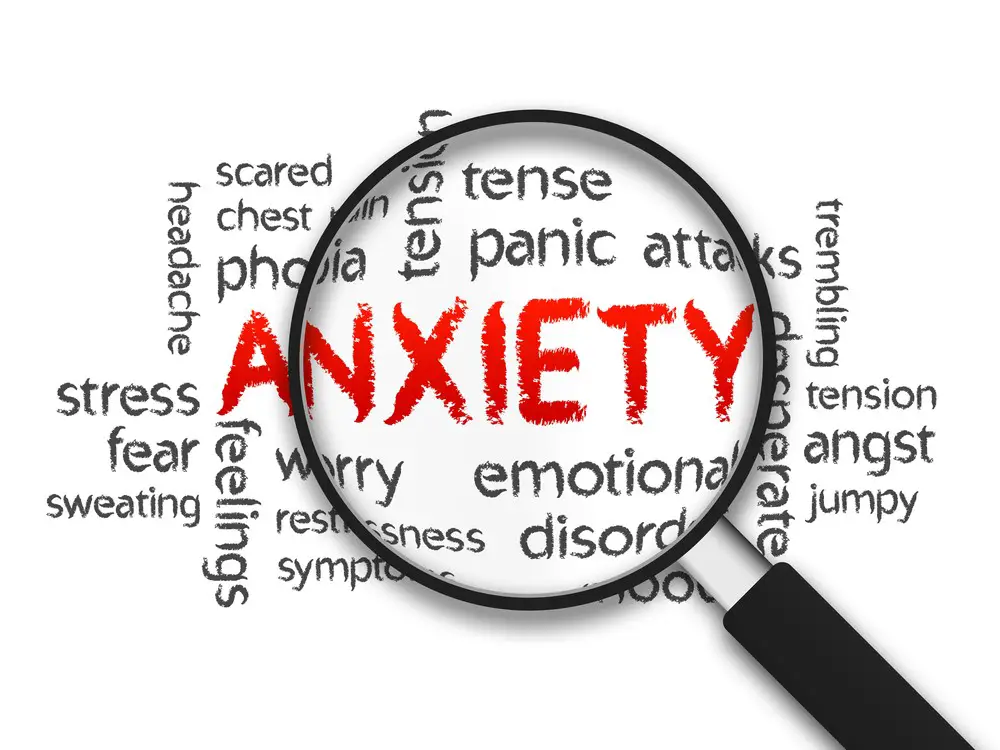As a BetterHelp affiliate, we receive compensation from BetterHelp if you purchase products or services through the links provided
Anxiety is a common mental health condition that affects millions of people worldwide. It can manifest in various forms, such as generalized anxiety disorder, social anxiety, and panic disorder. One method of managing anxiety that has gained attention recently is using anxiety inhalers. These portable devices offer a unique, fast-acting solution for those experiencing heightened anxiety or panic attacks.
Anxiety inhalers are designed to deliver anti-anxiety medications directly to the user’s lungs, quickly absorbing them into the bloodstream. This rapid delivery system can provide near-immediate relief for those throes of a panic attack or intense anxiety symptoms. This article aims to provide an in-depth look into anxiety inhalers, outlining how they work, prescribed medications, potential side effects, and ways to manage anxiety with these devices.
Key Takeaways
- Anxiety inhalers provide fast-acting relief for individuals experiencing heightened anxiety or panic attacks.
- These devices deliver anti-anxiety medications directly to the lungs for quick absorption and near-immediate relief.
- Careful consideration of prescribed medications and potential side effects is important for managing anxiety with inhalers.

Understanding Anxiety Inhalers
Anxiety and Inhaler Connection
Anxiety disorders can manifest in various ways, including shortness of breath, rapid heartbeat, and panic attacks. For some individuals, anxiety symptoms may mimic asthma symptoms, leading to difficulty breathing. In these cases, doctors may prescribe inhalers to help alleviate anxiety-related symptoms.
Inhalers are portable devices that deliver medication directly to the airways, enabling quicker relief than orally administered medications. They commonly treat asthma, chronic obstructive pulmonary disease (COPD), and other respiratory conditions. When used for anxiety, inhalers can offer rapid relief from shortness of breath, providing a sense of control and helping the individual to cope with stress.
Types of Inhalers for Anxiety
- Albuterol Inhalers: These contain a short-acting bronchodilator medication that helps relax the muscles around the airways, making breathing easier. Albuterol inhalers are frequently prescribed for individuals experiencing anxiety-related shortness of breath. It is important to note that they should be used only as directed by a doctor and not as a long-term solution for managing anxiety.
- Metered Dose Inhalers (MDIs): MDIs are inhalers that deliver a specific amount of medication with each use. They contain different combinations of medications, such as bronchodilators and corticosteroids, and can be tailored to meet the needs of each patient. While these inhalers are primarily used for asthma and COPD, they may be helpful for individuals with anxiety who experience respiratory symptoms.
Individuals must consult their doctor before using an inhaler for anxiety symptoms, as the underlying cause must be correctly identified and treated. Additionally, anxiety inhalers should not replace therapy, counseling, or other prescribed medications for anxiety management but can be part of a comprehensive treatment plan.

How Anxiety Inhalers Work
Mechanism of Action
Anxiety inhalers deliver medication directly to the lungs, targeting the sources of nervousness and shortness of breath. Some anxiety inhalers contain corticosteroids, which have anti-inflammatory properties that reduce airway swelling and ease breathing. Others utilize bronchodilators, which relax the muscles around the airways and open them up for better airflow. These medications are often administered through a metered dose inhaler, nebulizer, or dry powder inhaler.
Direct delivery to the lungs ensures a rapid and targeted response, treating anxiety symptoms with fewer side effects than oral medications. This can be particularly helpful during an asthma attack triggered by anxiety or stress.
Nervous System Response
The nervous system plays a key role in the effectiveness of anxiety inhalers. The nervous system comprises two main parts: the sympathetic and the parasympathetic nervous systems. The sympathetic nervous system is responsible for the “fight or flight” response, including symptoms such as rapid heart rate and shortness of breath. On the other hand, the parasympathetic nervous system calms the body, promoting relaxation.
Anxiety inhalers work with both aspects of the nervous system to reduce symptoms. By targeting the receptors in the lungs, these medications can stimulate the parasympathetic nervous system to counteract the effects of anxiety and stress, restoring balance and promoting relaxation and ease of breathing.
In summary, anxiety inhalers target the lungs and the nervous system to alleviate symptoms such as shortness of breath and rapid heart rate. By utilizing various delivery methods and medications, these inhalers can provide rapid and effective relief for individuals experiencing anxiety and stress-related asthma attacks.

Prescribed Anxiety Inhaler Medications
Common Inhaler Medications
Currently, anxiety inhalers are not as widely prescribed as oral medications. However, traditional anti-anxiety medications could be administered through inhalation, including benzodiazepines and antihistamines.
Benzodiazepines, such as alprazolam, clonazepam, lorazepam, diazepam, and valium, are known for their rapid onset in treating anxiety symptoms. Through inhalation, these medications may potentially work even faster and more efficiently. Antihistamines, like hydroxyzine, can also serve as alternative inhaler medications for anxiety treatment.
Off-Label Medications
Inhaler medications can also include off-label options. Some known off-label medications, which were originally designed for other purposes but showed potential in anxiety treatment, are:
- Propranolol: A beta-blocker primarily used for heart conditions but also found to be effective in reducing anxiety symptoms.
- Paxil, Prozac, and Zoloft: Selective serotonin reuptake inhibitors (SSRIs) that help regulate mood and may positively affect anxiety.
- Escitalopram: A variant of the SSRI group that affects serotonin levels and has shown potential in treating different types of anxiety disorders.
- Cymbalta and Duloxetine: Serotonin-norepinephrine reuptake inhibitors (SNRIs) that increase serotonin and norepinephrine levels, potentially alleviating anxiety symptoms.
- Bupropion: Atypical antidepressants which might aid in reducing anxiety levels.
- Venlafaxine and paroxetine: Other possible off-label medications for anxiety treatment.
It’s crucial to note that using these medications as inhalers for anxiety treatment is still under research, and patients should always consult with medical professionals before trying new forms of anxiety management.
Managing Anxiety with Inhalers
Therapy and Medication Combination
Integrating anxiety inhalers into a comprehensive treatment plan can help manage anxiety symptoms effectively. Consulting a mental health professional is often necessary to tailor a plan that includes therapy, medication, and lifestyle modifications. Combining inhalers with therapeutic techniques such as cognitive-behavioral therapy (CBT) can provide a more balanced approach to treating anxiety.
Additionally, working closely with a healthcare provider or pharmacist to administer the right dosage and effectively manage withdrawal symptoms if necessary is essential.
Lifestyle Changes
Aside from therapy and medication, incorporating healthy habits into daily life can significantly impact anxiety management. Some recommended lifestyle changes include:
- Exercise: Regular physical activity helps release endorphins and promotes relaxation, reducing anxiety symptoms.
- Sleep: Adequate rest is vital for maintaining emotional balance and reducing stress.
- Diet: Consuming a balanced diet rich in whole foods and essential nutrients can improve overall mental well-being.
- Relaxation techniques: Mindfulness, meditation, or deep-breathing exercises can alleviate stress, decrease headache frequency, and improve focus.
- Identifying triggers: Recognizing and managing anxiety triggers can help prevent the reoccurrence of anxiety symptoms.
In conclusion, managing anxiety with inhalers involves a combination of appropriate medication, therapy, and lifestyle changes. Monitoring progress and communicating with a healthcare provider or mental health professional can ensure a successful, well-rounded treatment plan.
Potential Side Effects and Interactions
Common Side Effects
Anxiety inhalers, like other medications, can cause side effects. Some common side effects include drowsiness, stomach upset, restlessness, shaking, pounding heart, and sweating. These side effects are generally mild and may subside as the body adjusts to the medication. However, if any of these side effects persist or worsen, consulting with a healthcare professional is essential.
In rare cases, some patients may experience more severe side effects, such as wheezing and inflammation. These symptoms may indicate an allergic reaction to the inhaler. If you experience these side effects, contact your healthcare provider immediately.
Drug Interactions
Anxiety inhalers may interact with various medications, reducing effectiveness or increasing side effects. Some common drug interactions include antidepressants, prednisone, and Xanax. You must inform your healthcare provider about all the medications you are currently taking, including over-the-counter drugs, supplements, and herbal products.
Caffeine can also interact with anxiety inhalers, potentially worsening side effects such as restlessness and a pounding heart. Patients using anxiety inhalers should limit their caffeine intake to avoid exacerbating these side effects.
It is important to follow the advice provided by healthcare professionals and refer to reputable sources such as the Mayo Clinic for additional guidance on managing side effects and drug interactions.
FAQs
What is an anxiety inhaler?
An anxiety inhaler is a portable device that administers a quick dose of medication to help alleviate anxiety symptoms. These devices are typically small enough to fit in a pocket or purse and can provide immediate relief when anxiety strikes.
How do anxiety inhalers work?
Anxiety inhalers deliver a fine mist or aerosolized dose of medication directly into the user’s lungs. This allows rapid absorption into the bloodstream, providing quick and efficient relief from anxiety symptoms. Common medications used in these inhalers include alprazolam, lorazepam, and diazepam.
Are anxiety inhalers safe?
Yes, anxiety inhalers are generally safe when used as directed by a healthcare professional. However, it is important to consult with a doctor before using one, as the medication contained in the inhaler may not be suitable for everyone. Following the prescribed dosage and using the device only as needed is essential to avoid potential side effects or dependency.
Can anyone use an anxiety inhaler?
A doctor typically prescribes anxiety inhalers which are not meant for over-the-counter purchases. Individuals suffering from chronic or debilitating anxiety or panic attacks may discuss with their healthcare provider the potential benefits of using an anxiety inhaler as part of their treatment plan.
How can I get an anxiety inhaler?
If you are interested in using an anxiety inhaler, it is essential to consult with a healthcare professional to determine if it is the right choice for your specific needs. A doctor will assess the severity of your anxiety and recommend a suitable treatment plan that may or may not include the use of an anxiety inhaler.
- Breaking the Silence: Why Men’s Mental Health Matters More Than Ever - April 15, 2025
- How to Transform a Home’s Patio Space into a Relaxing Space - March 23, 2025
- 5 Strategies to Use a Cell Phone to Help Manage Your Stress - March 23, 2025
This site contains affiliate links to products. We will receive a commission for purchases made through these links.



